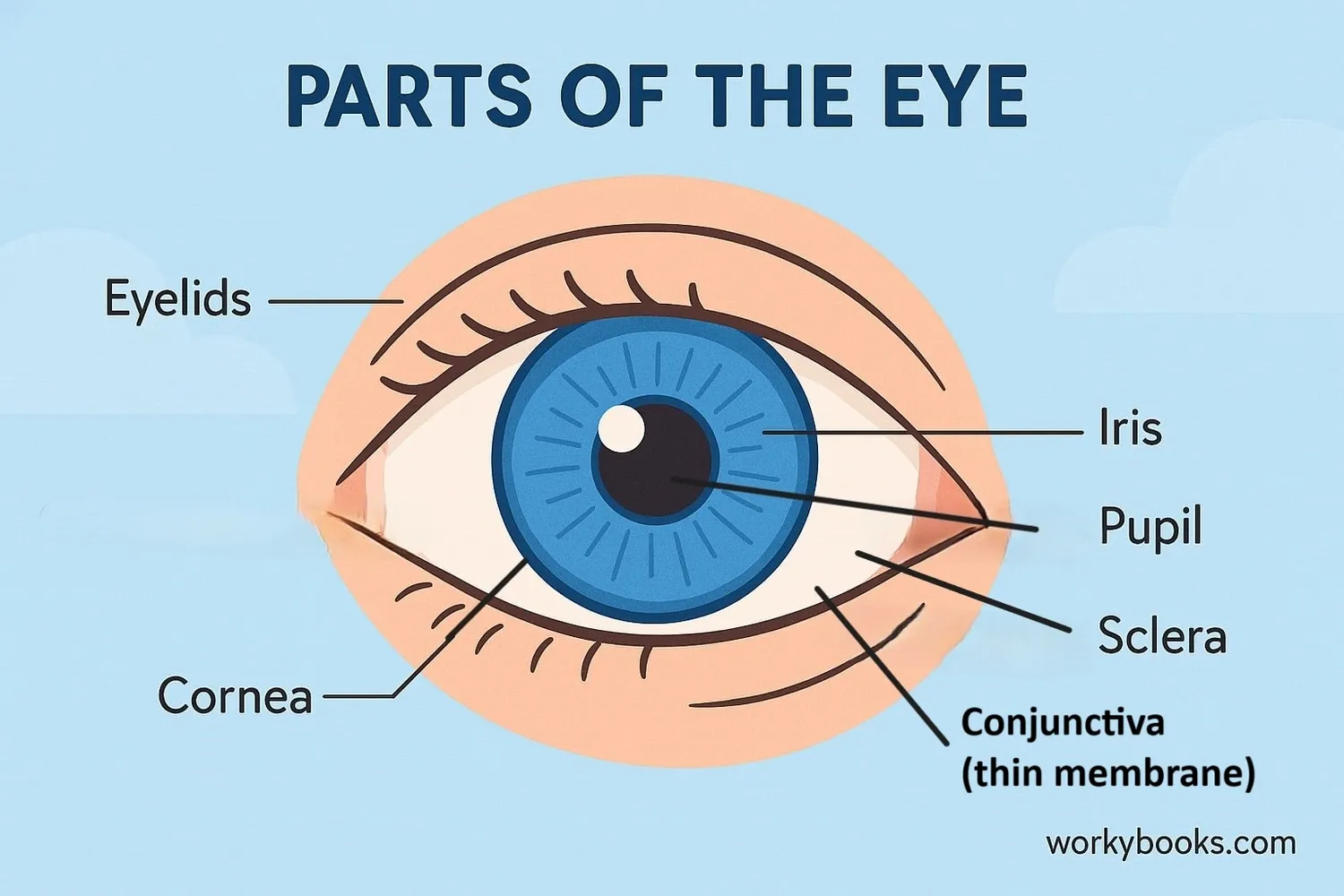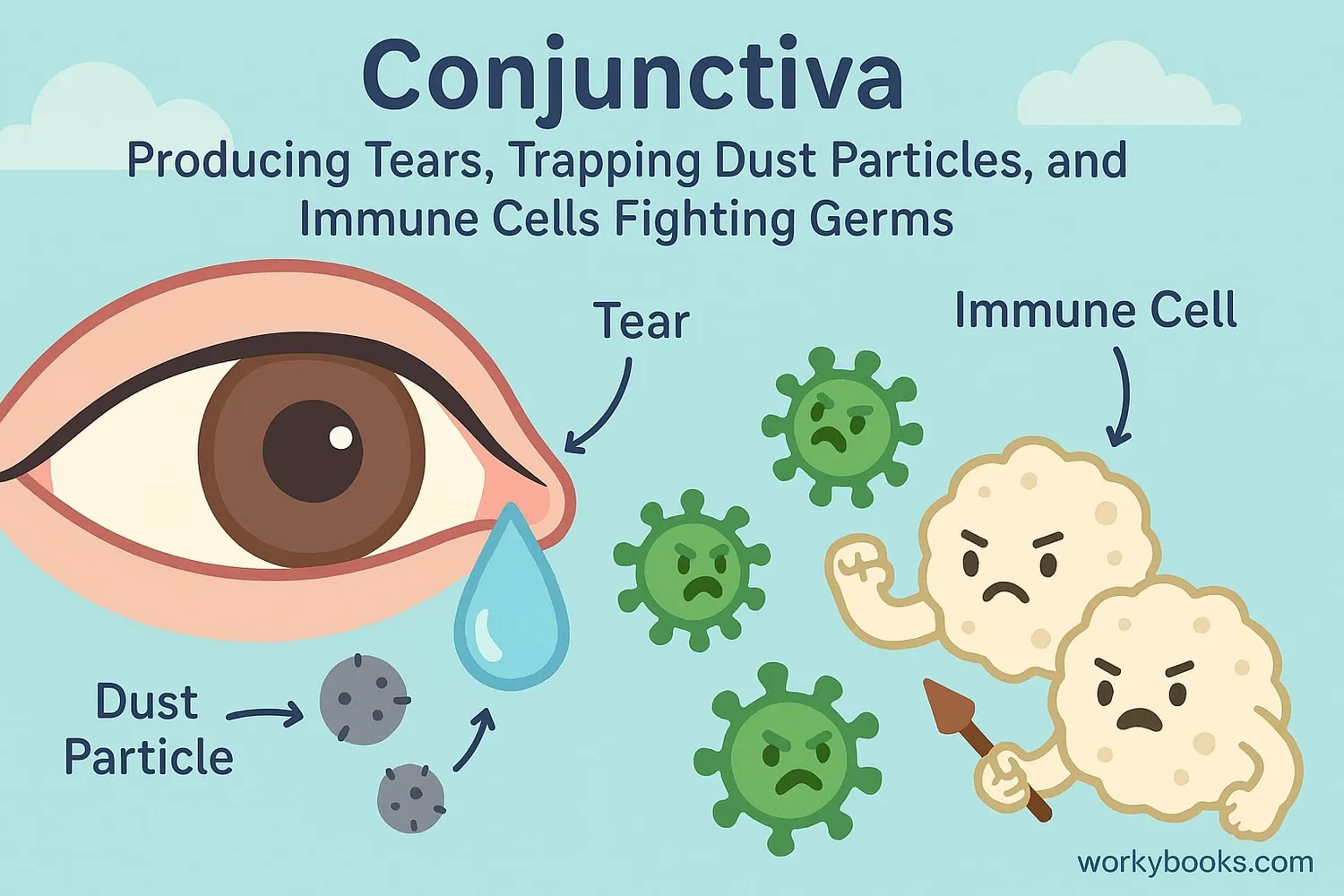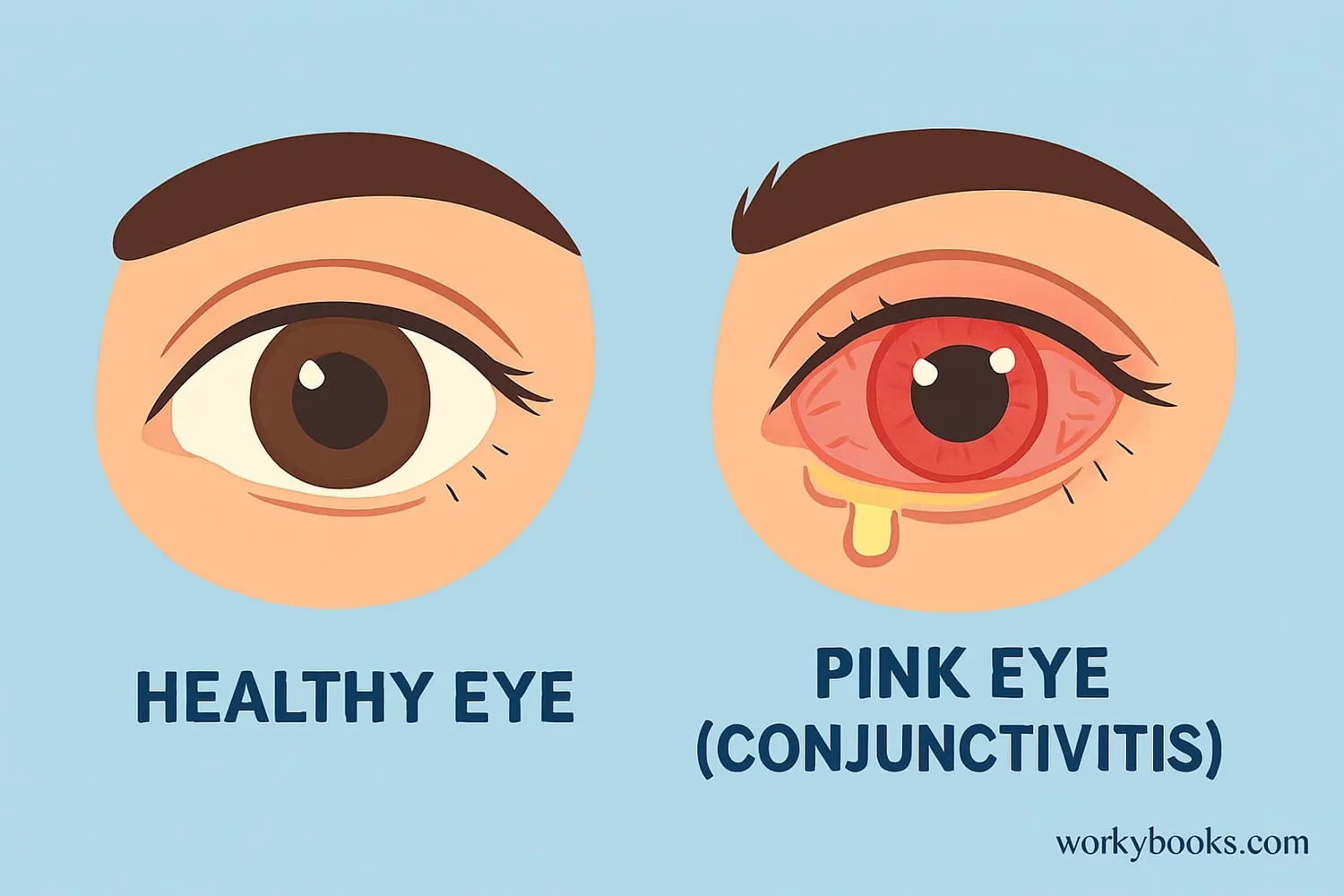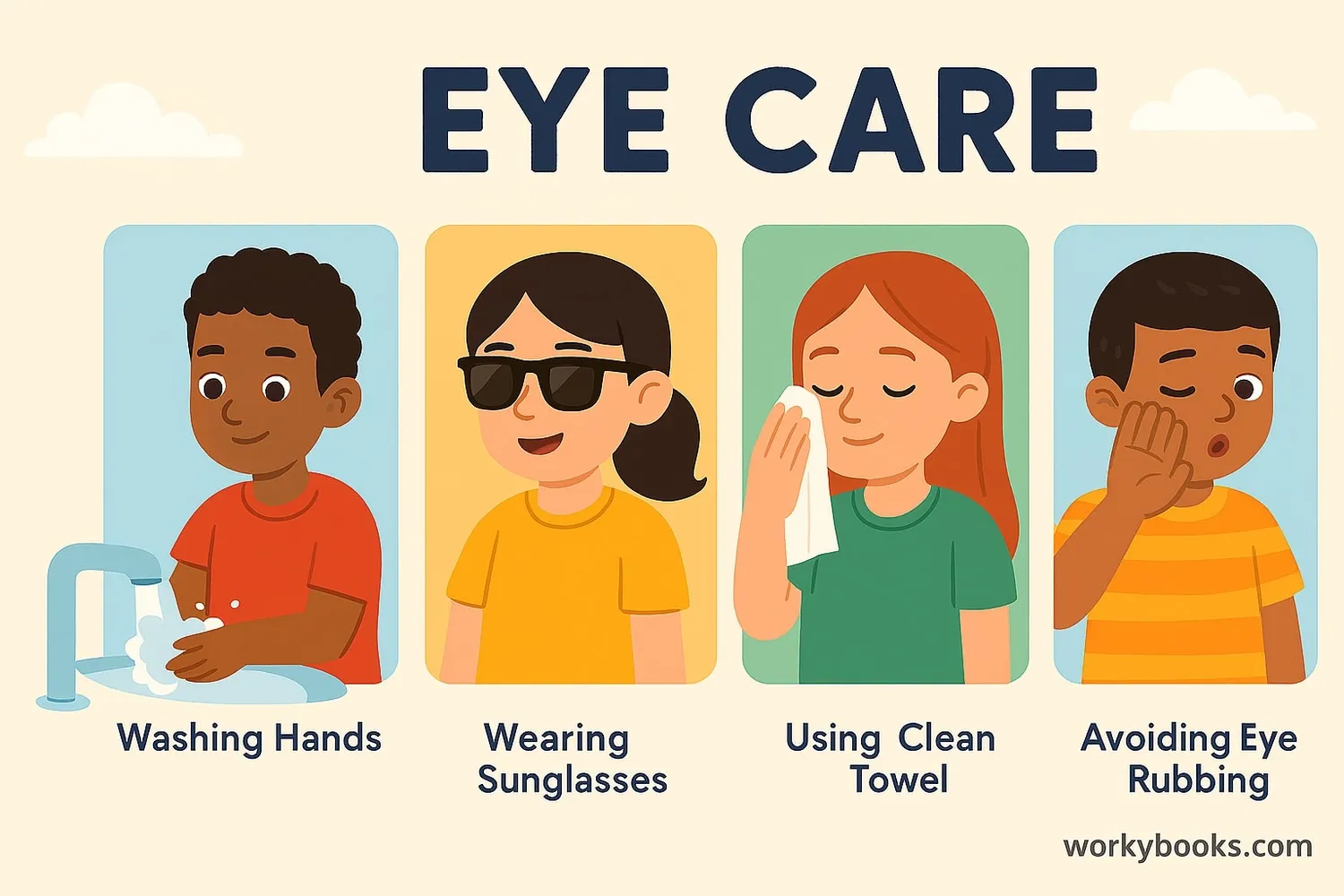The Conjunctiva: Your Eye's Protective Layer - Definition, Examples, Quiz, FAQ, Trivia
Discover the amazing membrane that protects your eyes every day!
What is the Conjunctiva?

The conjunctiva is a special clear, thin membrane that covers the white part of your eye (the sclera) and lines the inside of your eyelids. It's like a protective blanket for your eyes!
Think of it as nature's windshield wiper fluid system! This amazing membrane:
• Keeps your eyes moist with special tears
• Protects against dust and germs
• Helps your eyelids move smoothly
• Contains tiny blood vessels that nourish your eye
Did You Know?
Your conjunctiva is so thin and clear that you can see the tiny blood vessels underneath! That's why your eyes look pink when they're irritated.
How the Conjunctiva Protects Your Eyes

Your conjunctiva works like a superhero shield for your eyes! Here's how it protects you every day:
Tear Factory
Produces mucus and tears to keep eyes moist
Dust Shield
Traps dust and debris before they can scratch your eye
Germ Fighter
Contains immune cells that attack harmful germs
Smooth Mover
Helps your eyelids glide smoothly when you blink
Nourishment
Brings nutrients to the front surface of your eye
Every time you blink (about 15-20 times per minute!), your conjunctiva is working hard to spread tears across your eye. This keeps your vision clear and protects your eyes from drying out.
Blinking Fact!
You blink about 28,000 times every day! Each blink spreads a fresh layer of tears across your conjunctiva.
Conjunctivitis: Pink Eye Explained

Conjunctivitis, commonly called "pink eye," happens when the conjunctiva gets irritated or infected. It's like your eye has a cold!
Why eyes turn pink: When the conjunctiva is irritated, its tiny blood vessels swell up and become more visible, making your eye look pink or red.
Viral Pink Eye
Most common type, caused by viruses like the common cold
Bacterial Pink Eye
Caused by bacteria, often with yellow/green discharge
Allergic Pink Eye
Caused by allergies to pollen, dust, or pets
How pink eye spreads: Viral and bacterial pink eye are very contagious! They spread through:
• Touching your eyes then touching objects
• Sharing towels or pillows
• Close contact with someone who has it
Protect yourself: Wash your hands often, avoid touching your eyes, and don't share eye makeup or towels.
Keeping Your Conjunctiva Healthy

Taking care of your conjunctiva helps keep your eyes healthy and comfortable! Here's how:
Wash Your Hands
Always wash hands before touching your eyes
Wear Sunglasses
Protect from UV rays that can damage the conjunctiva
Don't Rub Your Eyes
Rubbing can irritate the delicate conjunctiva
If you wear contact lenses:
• Always wash hands before handling lenses
• Follow your eye doctor's cleaning instructions
• Never sleep in contacts unless approved by your doctor
• Replace lenses as recommended
When to see an eye doctor:
If your eyes are red, painful, sensitive to light, or have unusual discharge, see an eye specialist (ophthalmologist or optometrist).
Eye Comfort Tip!
If your eyes feel dry, try blinking slowly and completely 10 times. This helps spread fresh tears across your conjunctiva.
Eye Health Quiz
Test your knowledge about the conjunctiva and eye health with this quiz!
Frequently Asked Questions
Here are answers to common questions about the conjunctiva and eye health:
Eye-Opening Trivia
Discover fascinating facts about eyes and the conjunctiva!
Blinking Marvel
Newborn babies blink only about 2 times per minute, while adults blink 15-20 times per minute! Blinking spreads tears across your conjunctiva to keep your eyes moist and clean.
Underwater Eyes
Fish have a special transparent conjunctiva-like membrane called the "nictitating membrane" that acts like built-in goggles for seeing underwater!
Tear Production
Your conjunctiva helps produce three types of tears: basal tears for constant moisture, reflex tears for irritation, and emotional tears when you cry!
Speedy Healer
The conjunctiva is one of the fastest healing tissues in your body! Minor scratches can heal in just 1-2 days thanks to special cells that quickly regenerate.





